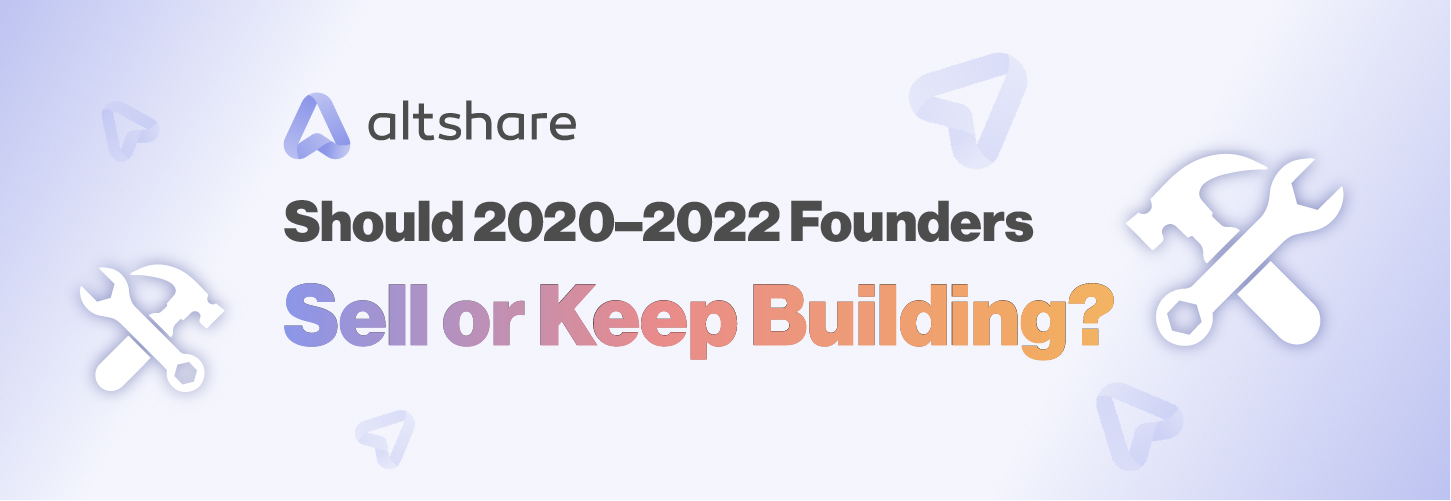Get Started

Login

Between 2020 and 2022, tech funding was booming. Capital flowed freely, valuations soared, and many startups secured significant investments often before even establishing product-market fit. Investor enthusiasm sometimes overshadowed sound business fundamentals, and optimism occasionally crossed into overconfidence.
Fast forward to 2025, the environment has shifted dramatically. Growth capital is more expensive, valuations have stabilized, and securing follow-on funding has become much more difficult. Founders who raised their first round during those years now face a crucial decision. They must choose whether to accept an acquisition offer or pursue additional capital in hopes of a larger exit in the future.
This decision goes beyond timing or valuation. It is fundamentally about ownership, dilution, and how the company’s cap table will play out in an actual exit. Each funding round reduces a founder’s equity, and new investors typically come in with preferred shares. Each class of shares carries specific rights, including liquidation preferences and participation rights, sometimes with complicated caps.
At exit, some investors may simply receive their invested capital back, potentially with a multiple. At certain exit values, others may convert their preferred shares into ordinary shares and participate in the upside. How and when this transition occurs depends on several factors. These include the price per share paid in each round, the exact terms of each investment, the extent of dilution, and the order of priorities among different share classes.
For example, after a down round, early investors who bought shares at higher valuations may recover only their original investment. Meanwhile, founders and newer investors who entered at lower prices might begin to benefit from the upside. The specific price and rights of each round set the threshold where investors switch from merely getting their money back to sharing in future gains. These critical values, shaped by the company’s funding history, mean that the true split of proceeds can differ significantly from the headline exit number. As a result, different groups may see the same offer very differently. A strong exit can leave founders with little if payback and dilution are high. Conversely, a modest exit might generate substantial returns for founders or certain investors, depending on the share structure and participation at each stage.
These shifting thresholds and incentives highlight why there is rarely a single right answer for founders or investors. Companies with strong growth, healthy fundamentals, and a clear path to profitability may choose to keep building, especially if they believe the market will rebound. However, the assumption that every new round will lead to a better outcome is no longer reliable. In many cases, accepting a clean exit while maintaining meaningful founder ownership can be the wiser financial decision.
In today’s market, success is less about chasing the highest possible valuation and more about understanding exactly how value is distributed when an exit occurs. This requires a clear grasp of the cap table and knowing how proceeds would actually be split among all shareholders at different exit values. This is the real power of waterfall analysis: mapping out who benefits, who is paid first, and where the real upside lies for every scenario.
Waterfall modeling brings these dynamics into clear view. It enables founders, boards, and investors to visualize how changes in company value, capital structure, or exit offers impact the final distribution.
Smart decisions come from clarity. Whether reviewing a new term sheet or considering an acquisition, being able to model the actual impact of each choice is essential to understanding what it truly means for you, your team, and your company’s future.
About altshare
altshare is a leading, fast-growing Equity Management & Compensation Plans Administration solutions provider. We love challenges. We are obsessed with our clients. We are on a mission to redefine the way founders do equity. All our products & services are supported through the altshare Platform - the only equity management platform built for entrepreneurs.